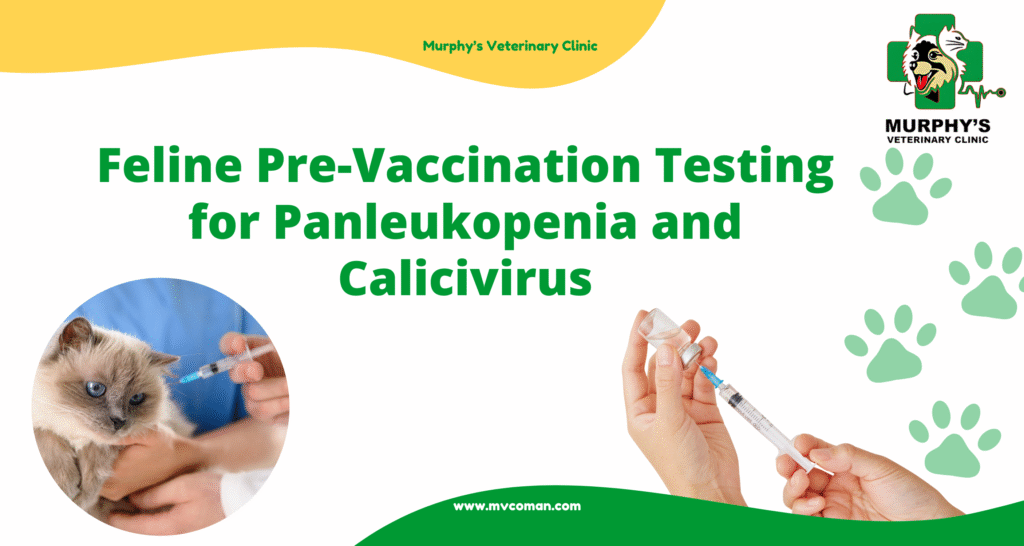Diseases & Treatments, Health & General Care, Vaccination & Prevention
Feline Pre-Vaccination Testing for Panleukopenia and Calicivirus
Topics covered in this article:
- Behavior & Training
- Diseases & Treatments
- Emergency & First Aid
- Environment & Pet Care at Home
- Health & General Care
- Conclusion
Feline Pre-Vaccination Testing for Panleukopenia and Calicivirus is a critical preventive step in veterinary medicine. Performing these tests before the first vaccination ensures that the cat’s immune system is evaluated properly and any hidden infection is identified. Feline panleukopenia, also known as feline parvovirus, is a highly contagious and life-threatening disease characterized by severe leukopenia, bone marrow suppression, and gastrointestinal involvement. On the other hand, feline calicivirus primarily affects the respiratory tract, oral cavity, and in some cases, the musculoskeletal system, leading to chronic stomatitis and lameness.
Feline Pre-Vaccination Testing provides veterinarians with essential diagnostic information to design the safest vaccination protocol. Without testing, an infected cat may experience severe complications, including immunosuppression and vaccine failure. Additionally, many cats can be asymptomatic carriers, spreading the virus without showing clinical signs. Early detection reduces the risk of transmission within multi-cat households and shelters.
This article highlights the importance of Feline Pre-Vaccination Testing, with emphasis on clinical, diagnostic, and preventive aspects prior to primary immunization in cats.
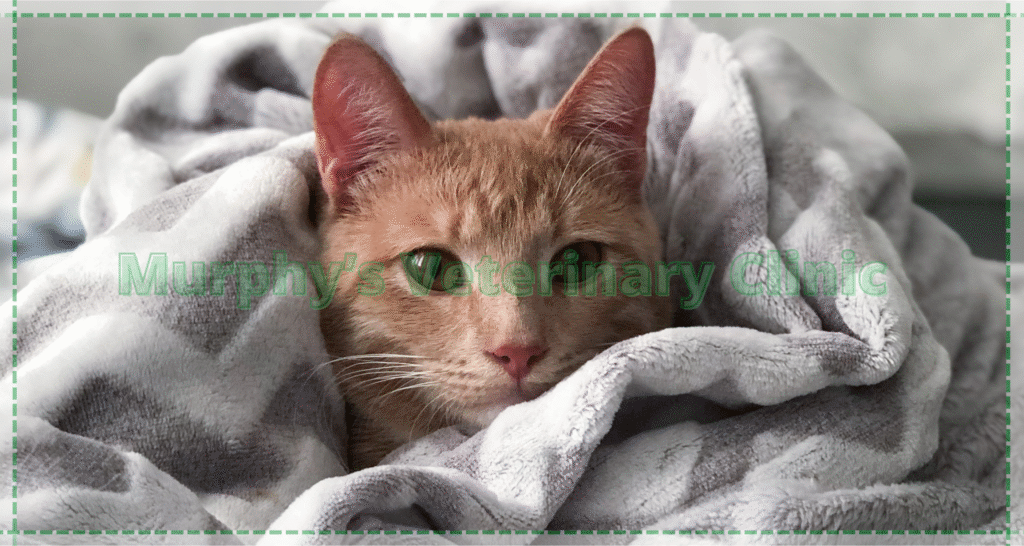
Behavior & Training
Feline Pre-Vaccination Testing has an indirect but vital role in behavior and training. Cats suffering from underlying viral infections often exhibit altered behavior due to fever, lethargy, or systemic pain. These behavioral changes may interfere with the animal’s ability to respond to basic training and social interaction. For example, a cat infected with calicivirus may show irritability and reluctance to eat because of oral ulcers, which directly affects its behavior.
Conducting Feline Pre-Vaccination Testing before the first immunization guarantees that the cat is both physically and mentally prepared for effective training programs. Identifying hidden infections not only improves prognosis but also reduces unnecessary stress during behavioral conditioning. In this way, the testing process ensures that the pet is in optimal health for socialization and learning.
- Fever-induced behavioral alterations
- Reduced social interaction
- Anxiety due to systemic pain
- Anorexia and generalized lethargy
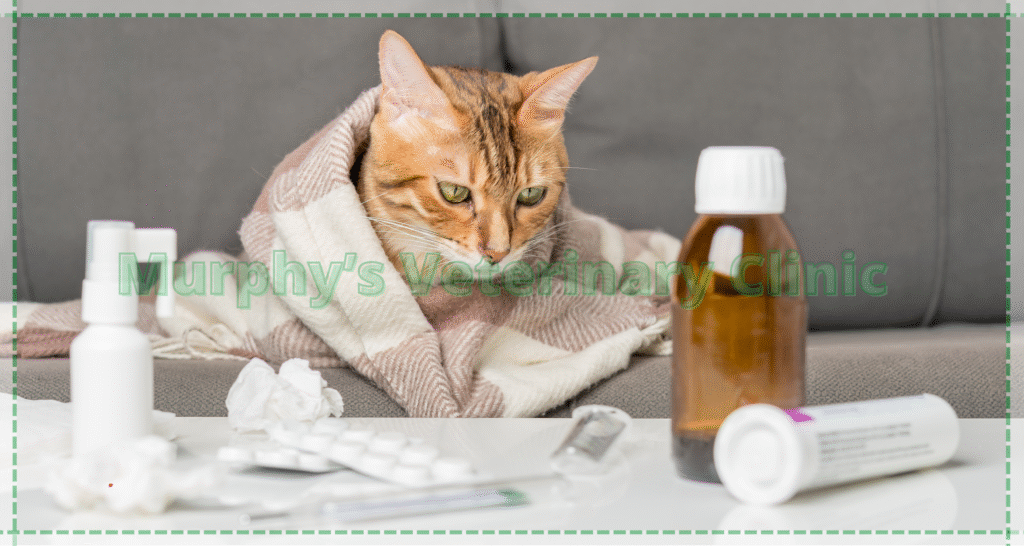
Diseases & Treatments
Feline Pre-Vaccination Testing is closely associated with disease management and treatment strategies. Panleukopenia is a severe viral disease that results in profound leukopenia, dehydration, and high mortality rates if untreated. Since there is no specific antiviral therapy, treatment primarily involves aggressive fluid therapy, antibiotics to control secondary bacterial infections, and hematologic monitoring. Calicivirus infection, in contrast, is often complicated by gingivostomatitis, nasal discharge, and conjunctivitis, requiring long-term supportive care.
By implementing Feline Pre-Vaccination Testing, veterinarians can detect infected animals before vaccination and initiate appropriate medical interventions. Serological testing and polymerase chain reaction (PCR) assays are standard diagnostic tools to confirm infection. Detecting the virus at an early stage enables timely supportive treatment, reducing morbidity and preventing transmission to healthy cats. Moreover, correct diagnosis prevents unnecessary vaccination in already infected cats, avoiding vaccine-induced complications.
- Use of PCR assays in diagnosis
- Serological testing for antibodies
- Supportive therapy for panleukopenia
- Management of calicivirus-related stomatitis
- Prevention of secondary bacterial infections

Emergency & First Aid
Feline Pre-Vaccination Testing plays a crucial role in emergency and first aid scenarios. Vaccinating a cat with an undiagnosed infection may lead to severe immunological reactions or exacerbate pre-existing conditions. For example, cats with panleukopenia may experience sudden leukopenic crises, septicemia, or shock if vaccinated without prior testing. Similarly, cats infected with calicivirus may develop acute respiratory distress, worsening after unnecessary vaccination.
Performing Feline Pre-Vaccination Testing in emergency settings allows veterinarians to differentiate between clinical signs caused by viral infections and those triggered by post-vaccination reactions. This distinction is vital for administering the correct emergency care, such as oxygen therapy, intravenous fluids, or rapid antibiotic intervention. By reducing the risk of adverse events, these tests provide a safety net for critical cases and help ensure the animal’s survival during acute episodes.
- Sudden leukopenic episodes
- Severe dehydration requiring IV fluids
- Septic shock management
- Acute respiratory distress
- Emergency oxygen therapy
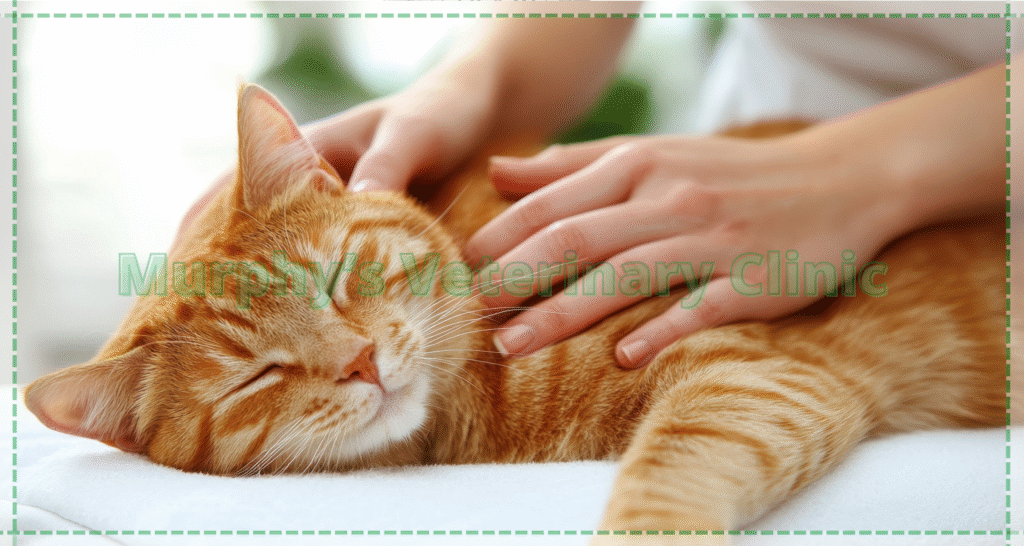
Environment & Pet Care at Home
Feline Pre-Vaccination Testing is equally important for at-home care and environmental management. Cats testing positive for panleukopenia or calicivirus must be isolated in a clean and stress-free environment to prevent transmission. Maintaining strict hygiene and disinfection protocols is critical because feline panleukopenia virus is highly resistant and can persist in the environment for months. Calicivirus, though less resistant, spreads easily through saliva, secretions, and contaminated surfaces.
By performing Feline Pre-Vaccination Testing, pet owners receive valuable information about how to manage their cat’s daily care. This includes regulating contact with other animals, adjusting environmental enrichment, and maintaining strict cleanliness. Such measures are essential for controlling disease outbreaks, especially in multi-cat households or shelters. Home-based care guided by test results not only protects the infected cat but also prevents the spread of viral pathogens to the wider feline community.
Home Care Recommendations Based on Test Results
| Test Result | Recommended Home Action |
| Negative | Proceed with vaccination according to protocol |
| Positive for Panleukopenia | Full isolation, supportive therapy, strict disinfection |
| Positive for Calicivirus | Respiratory and oral care, limit exposure to other cats |
| Inconclusive | Repeat testing and seek veterinary consultation |
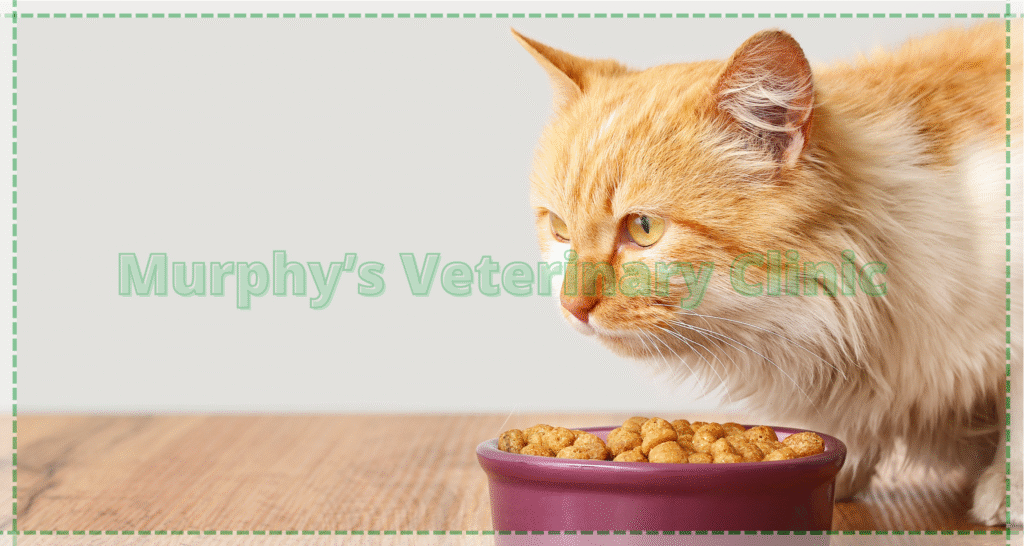
Health & General Care
Feline Pre-Vaccination Testing also contributes to overall feline health and preventive veterinary medicine. Beyond disease detection, these tests inform veterinarians about the animal’s immune status, which guides decisions regarding nutrition, supplementation, and general wellness plans. Cats with weak immune responses may require dietary adjustments, immune-boosting supplements, or delayed vaccination schedules.
Moreover, Feline Pre-Vaccination Testing ensures that the pet receives vaccines at the most appropriate time, reducing the risk of vaccine failure or adverse effects. It supports long-term monitoring of feline health by integrating laboratory findings into the pet’s medical history. From preventive care to routine checkups, these diagnostic tools empower veterinarians to deliver personalized healthcare, optimizing both immunity and quality of life.
Role of Testing in General Care
| Health Domain | Contribution of Testing |
| Nutrition | Adjusting diet based on immune status |
| Immunity | Determining the optimal time for vaccination |
| Prevention | Reducing viral transmission in feline populations |
| Health Monitoring | Supporting regular health assessments and long-term care |
Conclusion
Feline Pre-Vaccination Testing for Panleukopenia and Calicivirus represents a cornerstone of preventive veterinary care. These diagnostic evaluations not only identify hidden infections but also protect cats from potential vaccine-related complications. By detecting viral pathogens early, veterinarians can initiate prompt treatment, minimize morbidity, and reduce viral spread in feline populations.
Cats that appear clinically healthy may still harbor infections, emphasizing the necessity of Feline Pre-Vaccination Testing as part of routine veterinary protocols. This approach improves the safety and effectiveness of vaccination programs, enhances feline welfare, and protects entire communities of cats. For pet owners, embracing this preventive step means ensuring a healthier, longer, and safer life for their companions. Ultimately, integrating Feline Pre-Vaccination Testing into routine practice sets the foundation for comprehensive feline healthcare.
Murphy’s Veterinary Clinic offers specialized diagnostic services in Feline Pre-Vaccination Testing, using advanced laboratory equipment for accurate detection of viral diseases. The clinic provides expert guidance on vaccination schedules, supportive care, and environmental management for infected cats. By combining modern diagnostics with individualized health plans, Murphy’s Veterinary Clinic ensures that every cat receives the safest and most effective preventive care.


